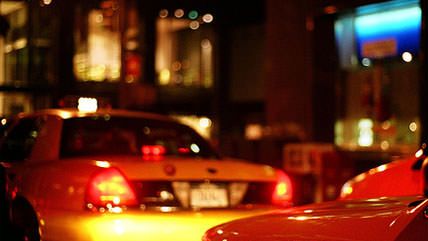Ban Taxis
If Uber isn't safe, then taxicabs aren't either.

SACRAMENTO — A search of "taxi" and "car crashes" will reveal a long list of troubling news stories. In San Francisco last year, an Ohio couple died after a cab with bad brakes slammed into a concrete pillar. A year earlier there, a taxi driver who caused a deadly crash was identified as a man convicted in a notorious murder case, yet he passed the background checks.
Normally, I would say this, sadly, is part of life. Driving is an inherently dangerous activity and despite a litany of state and local taxicab, driving, insurance, and other regulations, there's no way to make the world perfectly safe. But now my conclusion is different: The only solution to the taxi-safety problem is to ban all taxicabs from the roadways.
Where did I come to such an outrageous (and admittedly tongue-in-cheek) idea? From the taxicab industry itself. Based on a tragic accident in San Francisco involving a driver with the ridesharing service, Uber, the taxi industry says such firms are too dangerous and should be shut down or at least faced with the same type of regulations faced by cab companies.
Local governments typically limit the number of cabs that can operate. Regulators set rules, rates and insurance requirements. Cab companies complain about all the regulations, but they also benefit from the way this system keeps out the competition.
Ridesharing companies – known as Transportation Network Companies, or TNCs — have created a new model that circumvents all these rules and government control. Companies such as Uber, Sidecar, and Lyft don't operate cars, but run smart-phone-based applications that enable riders to find drivers. The TNCs self-regulate — they require drivers to maintain insurance and car-quality levels, for instance – and have been growing because the public seems to like the service.
No one likes to lose business, so cab drivers and company owners are upset. A few weeks ago, one could hear a cacophony of car horns as cab drivers drove around the California Capitol to protest the TNCs and to support efforts to hobble them.
Los Angeles City Councilman Paul Koretz, a prominent backer of two bills in the state Capitol, said in published reports that "Without regulation, these ridesharing services should not be allowed to operate on our streets." He called them "unsafe."
The two current state bills would not ban the services, but critics see them as an attempt to chip away at their competitive advantages. A.B. 612 would force TNCs to become more like the highly regulated taxicab business. It has been softened through amendments . And A.B. 2293, dealing with insurance mandates, has a good chance of passage when the Legislature reconvenes in August.
That Uber-involved accident in San Francisco highlighted a gray area. The accident took place after the driver had the app on but before he had passengers. Is the driver (and that driver's insurance policy) or the TNC liable for any crash in that situation? That's a fair question, although the insurance carriers could answer it by spelling out their coverage more clearly in policies they offer.
"Uber/Lyft do not want to pay for commercial insurance to cover the acts of their drivers, and are trying to subsidize their commercial expenses through claims payments under personal insurance policies," Rex Frazier, the head of the Personal Insurance Federation of California, told me.
But many critics say the bill, which imposes a $750,000 insurance requirement, also is meant to limit competition. The bill "adds unnecessary state insurance requirements … over and above what is currently required for any car on the road, including most taxis, during the period when no rider is in the car and no commercial activity is taking place," said Uber's Eva Behrend.
The political situation is complicated, as many cabbies oppose A.B. 2293 because they believe it will legitimize the existence of ridesharing companies. So whatever happens with the bill, the taxi industry wants more — the end of "unfair competition," as taxi-driver/protesters put it during one recent anti-Uber rally in Los Angeles.
These efforts, the taxi industry says, will protect the public. But if one Uber tragedy justifies the shutdown of an industry, when do we start taking taxicabs off the road?


Show Comments (11)